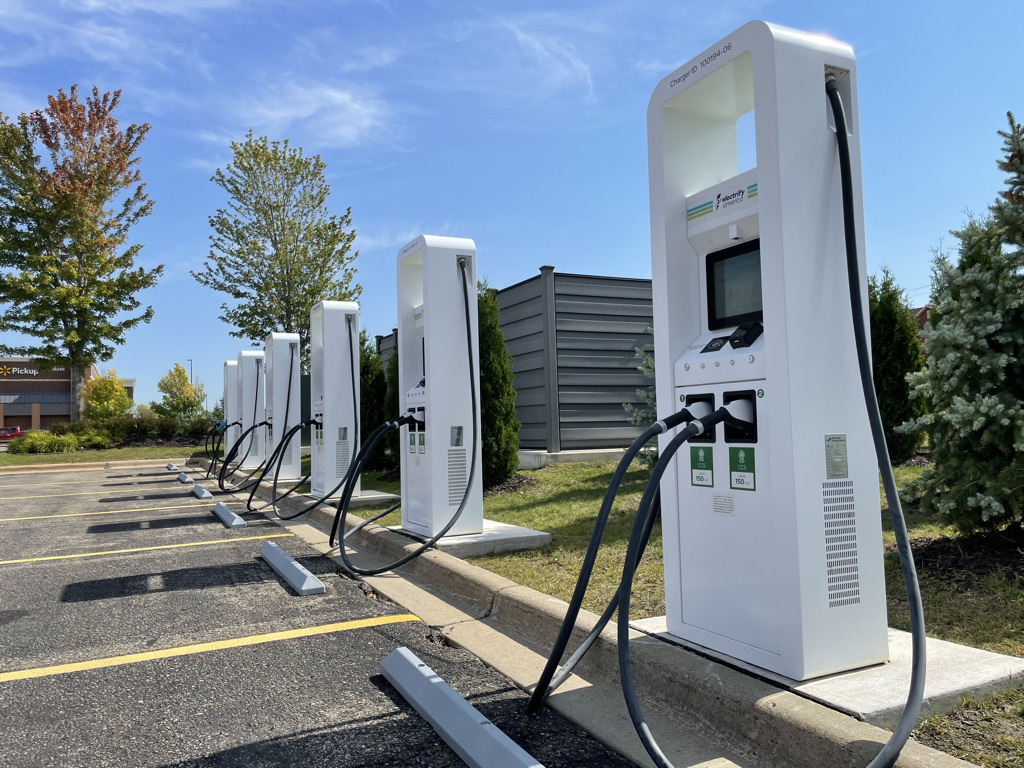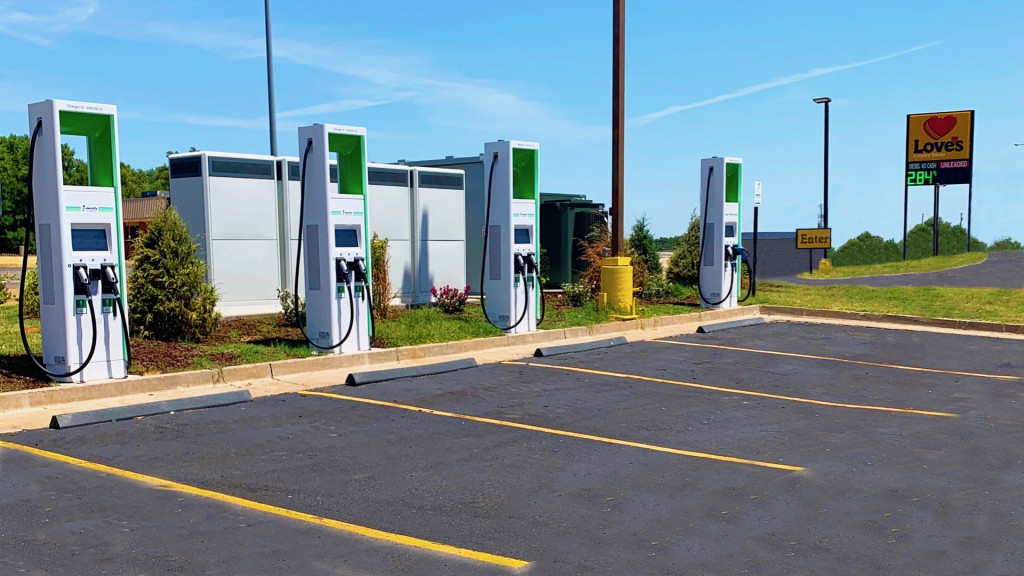
Electrify The united states strategies to elevate EV charging rates in March, with frequent end users seeing the major price hike.
Associates of the firm’s Pass+ regular charging software will see charges maximize to $.36 for every kwh, when non-users will spend $.48 for each kwh. Both equally rates increase by $.05 kwh, but Move+ customers also pay out a $4.00 a month fee (which remains unchanged), and they will effectively see a 15% rate improve with the charge factored in.
Price tag-per-minute prices are also going up. Consumers will now be billed at $.15 per minute for charging at up to 90 kw (a $.03 maximize) and $.29 for each minute up to 350 kw (an supplemental $.05 per moment).

Electrify America chargers
“Electrify The usa has been able to maintain constant and uniform pricing because September 2020 even so, soaring operational and electrical power costs have now made changing our pricing essential,” an Electrify The us spokesperson informed Environmentally friendly Motor vehicle Reports. “Our emphasis stays on meeting the requirements of electric motor vehicle drivers of these days and tomorrow by investing in our network expansion and enhancement to buyer practical experience.”
The nationwide-average cost of electric power is just 11.1 cents per kwh, according to the Vitality Data Administration, and particular to industrial electricity that a charging station might use, the cost of electric power has risen just about 11% calendar year in excess of yr. So EA’s price tag hike could be warranted on a straightforward price tag basis.
Electrify The us previous rebooted pricing in 2020—a controversial modify that successfully hiked selling prices for some models that didn’t cost at the peak level for their demand-energy tier.
Whilst a cost hike for community EV charging is not likely to have an effect on driving the way a gas-price tag hike would, it erases some of the running-price tag advantages that EVs have.

Electrify The us charging stations at Love’s Travel End
Desire charges—typically issued by utilities for unexpected spikes in electric power desire from other sorts of businesses—can considerably hike the price tag that charging networks pay out for every kwh although, and only a several states, these types of as Massachusetts, are tackling why. Demand rates are mainly aimed at industrial buyers of electrical energy, but charging networks have been strike with them.
In this situation, value hikes could possibly be motivated by profitability, as Electrify The united states has at several instances been looking for supplemental expense in a bid to scale up its community.


 2024 Lexus LC 500 fixes its biggest problem with new touchscreen infotainment
2024 Lexus LC 500 fixes its biggest problem with new touchscreen infotainment  Chery Factory Tour – Double Apex
Chery Factory Tour – Double Apex  Just launched: Jeep Wagoneer / Hyundai Palisade / GAC Empow / Hongqi Ousado
Just launched: Jeep Wagoneer / Hyundai Palisade / GAC Empow / Hongqi Ousado  How To Get a Free Car From The Government 2023
How To Get a Free Car From The Government 2023  Great Wall Motors Reveals Ridiculous Six-Wheeler CyberP!ckup
Great Wall Motors Reveals Ridiculous Six-Wheeler CyberP!ckup  Auto Mechanics for Automotive Repair and Vehicle Repair in Abbotsford | FunRover
Auto Mechanics for Automotive Repair and Vehicle Repair in Abbotsford | FunRover  Smart budgeting strategies for tradespeople
Smart budgeting strategies for tradespeople  Exploring New Car Ratings: A Comprehensive Insight into Automotive Excellence
Exploring New Car Ratings: A Comprehensive Insight into Automotive Excellence  Vintage Ring Settings Loved by London Couples
Vintage Ring Settings Loved by London Couples